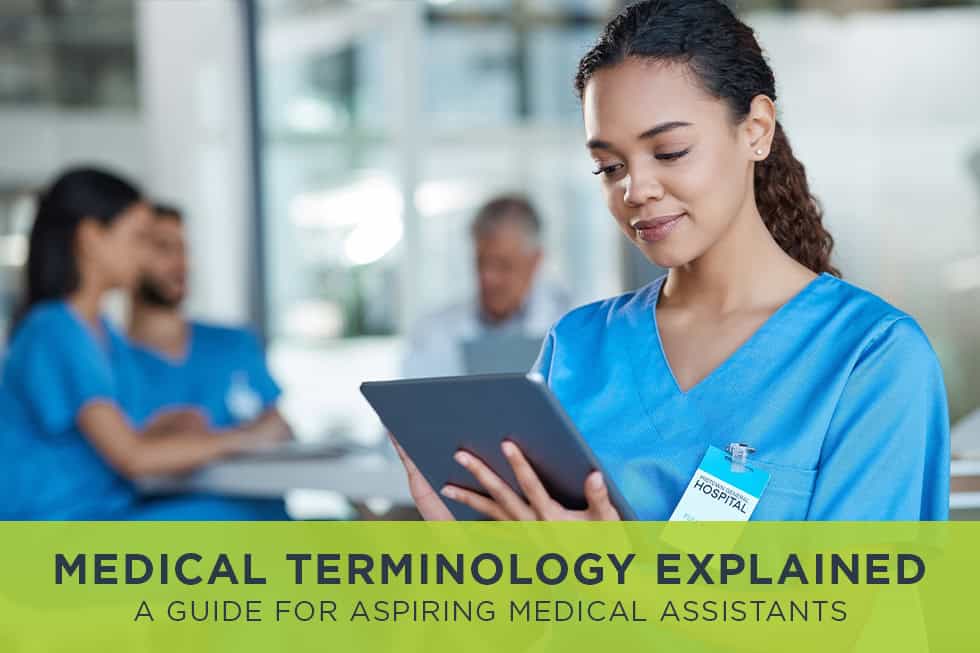Medical assistants embark on a journey filled with learning and growth, and one essential aspect of their education is mastering medical terminology. Medical terminology serves as the foundation of effective communication in the healthcare field, allowing professionals to accurately describe symptoms, diagnoses, treatments, and procedures.
Understanding Medical Prefixes, Roots, and Suffixes
Medical terminology is built upon a combination of prefixes, roots, and suffixes, each contributing to the meaning of a word. Prefixes are added to the beginning of a word, suffixes are added to the end, and roots form the core meaning. For example, the term “cardiology” consists of the prefix “cardio-” (related to the heart), the root “-logy” (study of), and the suffix “-logy” (study of). By dissecting medical terms in this manner, medical assistants can decipher their meanings and better understand medical concepts.
Common Medical Abbreviations and Acronyms
In addition to understanding full medical terms, medical assistants must familiarize themselves with common abbreviations and acronyms used in healthcare settings. From “BP” for blood pressure to “CBC” for complete blood count, these shorthand forms are widely used in medical records, prescriptions, and clinical documentation. However, it’s important to use abbreviations with caution to avoid confusion or misinterpretation.
Specialized Terminology for Different Medical Specialties
Medical terminology varies across different specialties within the healthcare field. For example, terminology related to cardiology will differ from that of dermatology or orthopedics. Medical assistants should familiarize themselves with specialized terminology relevant to their chosen area of practice.
The Importance of Accuracy and Precision
In the fast-paced environment of healthcare, accuracy, and precision are paramount when it comes to using medical terminology. Miscommunication or misunderstanding of terminology can have serious consequences for patient care. Medical assistants must ensure that they use terminology correctly and consistently to convey information accurately to colleagues, patients, and other healthcare professionals.
Continued Learning and Professional Development
Mastery of medical terminology is an ongoing process that requires dedication and continuous learning. Medical assistants should seize every opportunity to expand their knowledge and stay updated on the latest developments in the field. Whether through continuing education courses, professional workshops, or self-directed study, there are endless opportunities for growth and development.
Medical terminology serves as the cornerstone of effective communication in the healthcare field, and mastering it is essential for medical assistants. If you’re interested in pursuing a career as a medical assistant, MedQuest College offers comprehensive educational programs to help you achieve your career goals. Click here to learn more about our medical assisting program, or if you are ready to take the next step, submit your online application.

